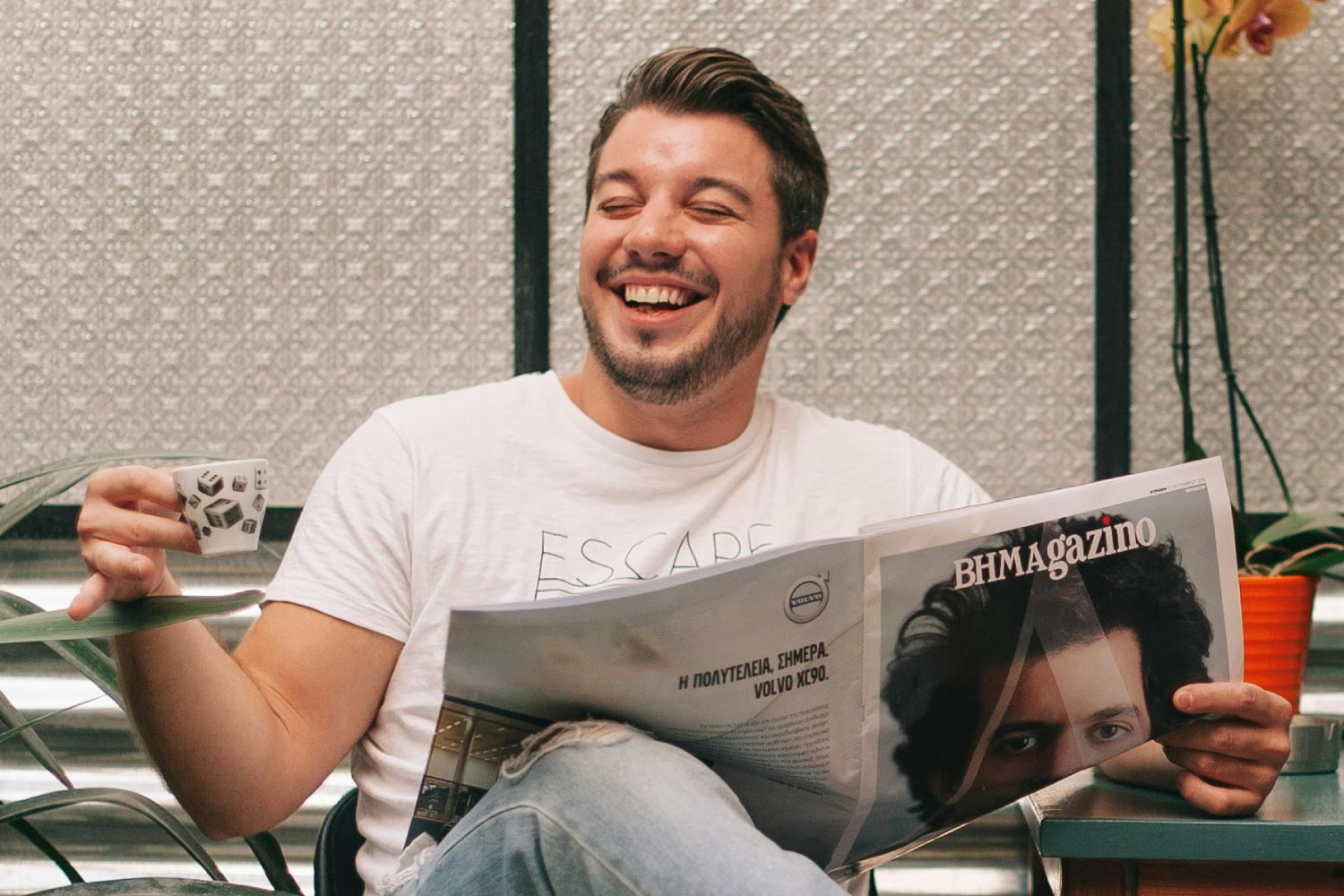I saw it coming again like a rippling wave of frustration and anger in my heart. We had been on the road for less than 30 minutes and already I was having problems with Mignonne. I had carefully said my morning prayers and set an intention for a day of peace and happiness side by side. Furthermore, the day was crisp and clear and echoed well of my commitments to get a good start. Yet once again, I was experiencing the weakness of my communication skills. It was even more than that: it was a blunt revelation of our inability to understand one another. I was starkly reminded of past times with my children when they were still little ones. Of anger erupting, because they were not cooperating to finish up their plate, tidy their room or simply hurry along to get going to school. In essence, I was stripped bare and left to ponder on how much work I still had to do to just be mindful of what was going on and what was needed from me, attitude-wise.
So, I had set out two weeks ago from Paris with a 5-year-old donkey to walk toward Le Puy en Velay, a small provincial town some 750 kilometers (500 miles) south. I had decided to take a long walk as a token for the change in my professional life that was occurring. I was leaving a very well-paid job in corporate finance to move into the – unknown to me – world of coaching, facilitation and leadership training. I felt the need to fully adjust myself to this major change. And I had imagined something extravagant and daring. A project where I would confront myself physically and mentally to the unknown. I was going to do a serious walk through France, my native country.
And since I did not believe I could walk with (20-30 pounds) on my back, I had chosen to take a donkey along, Mignonne, to carry my equipment.
Donkeys are funny creatures. They are curious, sensitive and challenging. In the prior three years, we had gone on family walks with friends and experienced what it was to have the company of donkeys. It had proved great fun. But this time it was a different story. I was going for a month long hike on my own, and this was quite different compared to a few days with friends and the reassuring presence of the not-far-away owner. For this trip, Mignonne had been driven up north some 800 kilometers (about 500 miles), and I was left alone to take her all the way down again. I had learned that donkeys are gregarious animals. On their own, they feel lonely and anxious. Mignonne was upset about leaving home. And she made her point on the first day we set off. She charged off with haste, and I had a hard time following at first. She was also a real beauty, stunning in appearance: she was tall, Andalusian with a very handsome grey-white robe. I quickly understood that she had intelligence of situations and clearly a mind of her own about how long she was going to walk or which way she was going to go. And we argued over and over again on such issues. I remember to this day, the glares we would exchange on the odd occasion when we were misaligned and confused.
There were, however, also times when we cooperated nicely, generally at the end of the day when we were both tired and anxious to find a place for the night. We would open our eyes and ears and seek a bearing toward a safe haven. Funnily, she was then my best ambassador. People are less afraid of a man with a donkey than a stranger walking by. And I witnessed some amazing examples of kindness and generosity along the way. As a man of Christian faith, I saw this as an expression of God’s love for humankind, which theology defines as the expression of divine Providence. In 30 days, I walked, I was overwhelmed by a feeling of love and gratitude for all the care and attention I received along the way.
When we look back, it’s always interesting to try and pinpoint events or encounters that were decisive for the future choices made. As I turned 40, something snapped inside me. It started with an urge to be outside and see the world for what it was and not for what I had been told it was. But it wasn’t just about being outside to discover landscapes and take a deep plunge into nature. There was also an urgent cry to be me and to make choices of my own. This issue of being self or of independence in the way I was leading my life, was the outcome of a rising awareness that I was not happy and satisfied by what I was doing. As a financial controller working for a large group, I had the feeling that after 15 years of professional experience, I just hadn’t really lived my life. This feeling is described magnificently by American author Matthew Crawford in his book: “Shop Class as Soulcraft: An inquiry into the value of work”. Matthew reinvested time, money and stamina to start a business as a motorcycle mechanic, leaving behind a handsomely paid job as executive director at the George C. Marshall Institute. He defines this clear-cut decision as to the appropriate answer to his need for both alignments to his purpose and values and his need for a profound sense of accomplishment in his work. I read his book many years after the walk but fully resonate with this idea of emptiness or lacking sense of accomplishment one may feel in his life.
The paradox was that I had always received consideration from my senior management. But my work context at the time was filled with insecurity and absence of vision: the cable industry I was working for in 2000-2002, was taking the full blow of the price drop due to competition from emerging countries (Turkey and China in my case). We repeatedly ran strategic planning exercises, which generally all proved unsuccessful in terms of business acumen. This transcribed into considerable frustrations and heated discussions with senior management, who were confronted with situations they were not in a position to manage. I felt depressed and unable to make some sense of the situation. To some extent, I was going through a similar phase I had experienced at the age of 12 when I had reintegrated into the French education system after five years of school in Australia. At the time, I experienced the shock of losing space, friends, and a very open education system. I had to adapt quickly and demonstrate resilience to adjust to an altogether different environment.
The second major event, three years before engaging on my catharsis trip, was a personal and family traumatic shock: my parents had a car accident that left my mother paralyzed from the shoulders down. The pain and the grief in the weeks that followed whenever I would visit my mother were acute, and they reinforced the feeling of emptiness and desolation I was experiencing in my work life. Nothing seemed right, and I was craving change without being able to define how to start the quest. This was extremely frustrating and induced a form of constant restlessness. I started finding myself interested in all sorts of experiences without being able to follow one down the road. But I had my “search mode” on, and my decision to start thinking of an alternative career, to accomplish things on my own and thus “find myself” had been taken.
But, having been employed over 18 years in the cocoon of a large organisation, habits had grown. I was used to have everything taken care of for me: office logistics, IT tools, travel arrangements, health, and insurance programs. And above all, I enjoyed a nice monthly paycheck which had enabled my family to make a nice living, including mortgage, a school for the children, great vacations. Therefore, the frill of engaging a 180° change was quickly cooled down by the chilling effect of the prospect of losing all of this (false) sense of security. I had to take it step by step.
The salary issue was, in the beginning, the first major hurdle. I had here another great opportunity for sleepless nights. Although my wife had started working again, her salary would not cover the expenses of a family of four with a mortgage. I needed time to think things out clearly. My first discussions had gone the wrong way: my senior management did not show any sympathy for a personal project outside the group. This implied that I was free to go, but I would have to resign from my position without any form of compensation. A risky situation to start again from scratch.
The resignation option goes against all uses and habits in France where the social insurance system is highly protective compared to many other countries. Some will argue, overly protective. My company was highly interested in my resignation, versus a redundancy plan, because it would not have to commit to severance pay, which can reach up to 18 or 20 months of salary. Also, the person made redundant can then claim pay to cover the time it will take him to find a new job. For senior employees in their mid-50s, finding a new position can be a major challenge, and unemployment benefits can potentially breach the gap of their last years before claiming their pension fund.
But, at the bottom of my heart, I just could not bring myself to negotiate a severance contract. Nobody was asking me to leave the company. I had not breached any professional code of ethics or engaged the group’s responsibility wrongly in any form or matter. I just wanted to change the course of my career and that decision was purely personal. This meant, in my view, that I had to assume the full responsibility of the decision I was taking. Consequently, I chose to be authentic in the discussions with my senior management and human resources department. And I also decided that I was going to trust my partners. People may argue that I was naïve or simply lucky; that, in the real world, it’s a question of striking the best deal, regardless of any feelings or values. I like to think that I was able, at the time, to engage in real conversations with intelligent people. The deal that was put on the table was to have training funded by the group over the three years before my resignation and a solemn promise between partners that in the immediate months following my leaving the company, I would be given some work on a consultancy basis. This is exactly what happened, and I was given sufficient work to build initial funds to get started in the first three years following the resignation. The success behind this story had to do with trust and openness between persons. I had taken a risk, it proved a sound bet, and I’m proud that it worked out.
The second source of my anxiety was ambiguity. On one side, there was the yearning to be the master of my destiny and to go my way. But on the other, there was also the sharp awareness that I was going to be alone out there. There would be no one to fall back upon in terms of work and responsibilities. A void suddenly would emerge in the daily rhythm of things. Being your own boss can be appealing, but it also leaves you with a sense of sudden loneliness. I can still remember in the first few months after leaving my company, feeling sometimes a sort of envy for those that had a fixed job; they knew what they had to do, and it was simply a question of getting on with it. In that change period, I could very well be sitting at home and wondering what I was up to: had I made a mistake? I had to learn to define my personal strategies based on a vision of who I wanted to be, rather than what I wanted to do. I discovered how finding a purpose for oneself is often mistakenly taken for defining what you are going to do. Simon Sinek is famous for explaining: before stating your what, you need to find your why.
Walking alongside Mignonne in that glorious summer of 2005, I had ample time to figure out which of the whys I wanted to live. Sometimes, I would imagine myself in the figure of Strider, Tolkien’s human hero of the “Lord of the Rings.” I was leading a path with smoothness and care, sharing kindness and responsibility with whomever I crossed. Translated into work, this could mean helping others find their own paths through, coaching, training, facilitation. The only problem with that is when you are under 50, there are a lot of people who have twice your experience and more to say or teach to others than you do. Other times, I would see myself as a new emerging Gandhi or Lanza del Vasto, building the bases of an alternative form of community living that could offer at last real answers to the strains and burdens our civilization is putting on Earth’s natural resources. Was I not experienced now in handling a donkey and living simply off Mother Earth? These utopian thoughts would fall through the roof when I was reminded of the family that I had and the financial needs that had to be met if our children were to enjoy the same level of education, from which I had benefited. Generally, I was left with a feeling of uncertainty. If I was happy with the choices I had made, I was certainly still very vague about how I was going to lead my life onward. So my purpose at the time could be summarised by simply learning to accept the uncertainty of having to earn a living on my own. And this adventure was a real practical case: I had planned my trip by choosing the paths appropriate for a traveler with a donkey, but there were no nice and cozy hotel rooms booked in advance. On these pathways, crossing rural villages, there were seldom any restaurants or convenient take-aways for lunch or cheerful breakfasts. Shopping along the way was hazardous. You don’t just park a donkey in a convenient parking lot. If ever, I got out of her sight, Mignonne would pretty quickly start fretting and call for me. So, going for groceries needed careful planning, and the strain was to keep the pace to reach a monastery or abbey before the next Saturday. That was the deal between Mignonne and me: if we got to the next monastery by the following Saturday evening, we had the Sunday off to rest.
This adventure turned out to be one of the most profound personal experiences of my life. My family joined me for a week, and the last few days were also shared with friends. When I returned Mignonne to her owner, I felt a feeling of pride and inner accomplishment. No doubt was Mignonne even happier to join back with her fellow companions. This experience provided me the self-esteem I was looking for. I still didn’t know clearly how I was going to lead my work-life onward, but I had the feeling I was finally going to find a sense of purpose for myself – even if there was still a long road in front of me to settle into my new life.
Back home after my trek with Mignonne, I was left with open questions: How was I going to give a new vision to my life now that I was the master of my own destiny? Aside from assuming my marriage and my responsibilities as father and husband, I couldn’t go much further at the time. What could I do to find the resources to transform myself into the entrepreneur I wanted to become? Where would I find them? There were so many options and possibilities in terms of training courses or learning experiences. One of Brueghel the elder’s paintings (16th century) illustrating a parable from the New Testament, depicts a column of blind men falling one after another into a ditch. Unaware of where they are being led, they are following one another by holding the shoulder of the companion immediately ahead, and as they stumble forward, they realise only when it is too late, that they are heading into a trap. That was precisely the image I had of my life at the time. Being led forward in a clumsy way, without a view of what was to come, always hoping for something better than yesterday. Like these blind men, I was afraid of taking the wrong path, of wasting time, money and energy in pointless investments. I felt as if I had had everything so far, the easy way.
And I indeed belong to a generation that has neither experienced war, nor famine nor any form of poverty outside of moral perspectives, perhaps. We may argue that this is fine: Who wants a life filled with fears, disease, and hunger? Yet does not human nature need some form of adversity to build itself upon? As a father and married man, I have experienced, like many, family issues: discovering that I was suffering from an incurable autoimmune disease at the age of 30 was one blow. Adopting and raising children born overseas has been another major challenge to face.
So, by the time I reached 40, it suddenly became clear that I had to come to terms with this issue of defining who I really was and what I wanted to do with my life. And nobody was going to do this for me. I had to do this on my own.
I would start working on this at the beginning by simply stating that I was going to stop doing what I was doing. This got unsurprisingly a very fresh welcome from my parents, friends, and relatives. To their understanding, I can now say their concerns were also the reflection of my being rather vague about the form my future job would take. You cannot transform yourself overnight, and setting oneself into a new job requires stamina and time. In the first couple of years, I needed to learn by reading, meeting others and looking as closely as possible into how things were done in the field of human relationships. I desperately needed time at an age when it seems unsuitable to be planning a new career. And I had to believe in myself. I have to give credit, at this point to my wife, who showed undisputable faith in my project, however shaky it may have appeared at times.
Yet, if I had ambition for myself, I was unable to give it shape or form because I just didn’t know clearly where or how to start. For example, it took eight years before I was ready to believe I could start a business of my own and stop working for others – simply because it was not clear in my mind what I had to offer specifically that others didn’t have. I had not invented a new management technique, nor could I say I was more expert than others in leadership skills or employee retention. I couldn’t argue about a specific skill that would have market value. In contemporary wording, I would summarise the situation by saying my pitch was weak and my vision too conceptual. You don’t convince people with great ideas that could change the world. You can catch their interest, on the other hand, by offering them something that can make a difference or can effectively solve one of their problems.
I like to think of the shaping of my purpose by using the metaphor of listening. In the first five years as a coach and facilitator, I listened more than anything else. I started by listening out of habit. It is like being slowly conscious that something in your daily life is out of scope, or that things are just not fitting in anymore. “I should be doing this rather than that,” or “I’m never going to succeed in doing this or that.” At this stage, I was indulging in judgments and beliefs. Initially, when I first started to think of a new purpose for my life, I decided I needed help to assess my personality. I worked with a retired psychologist who gave me a broad rundown on my values and main personality characteristics. The feedback, however, lacked empathy and vision. And I remember sitting at home with a sense of deep gloom after being told I had not chosen the adequate path career-wise. Judgments on myself and others would cascade down on me, leaving me with further anxiety for the future. I got out of this state of mind by getting to work with a professional coach. This introduced me to a newer form of listening: listening from outside to another voice which was much more factual and open, providing me with new lenses to see things differently. Having set aside past judgments, I could see differences with an open mind. What seemed yesterday a failure, was now an option or an opportunity. There was excitement in this process. I was discovering the power of coaching work, and I marveled at what could be done. I wanted to be doing the same thing.
The third step was another shift in my listening: a subtle move from the outside to the inside. What does this mean? I believe there is nothing that we do or think that does not come from somewhere or someone. I have received life as a result of a loving relationship between my father and mother. I surely cannot say that I am the only architect of my life. Some choices and acts reflect weaknesses in my character. By adapting myself to the trials and errors however, I found I had resilience I could build upon. I also modeled myself on those I grew up with: not just parents and family, but also teachers, mentors, and friends. And there came the point when I was ready to trust the world enough to move into the space of empathetic listening. This meant that I could start giving in return. As I opened my heart to my true self, my listening became deeper, more challenging. I engaged myself in a progressive process of deconstruction of the self, or ego. After leaving my C-suite executive position, my first job was to manage a Catholic chaplaincy for teenagers where I experienced deeply enriching relationships with others through religious education. I fully engaged myself in activities and events I had missed out on years before when I had their age. My ambition was to experience authentic relationships and enjoy a new form of recognition. This meant working with a new pair of glasses or seeing things through a different perspective. When we can go through this process, we are like clay in the hands of the potter. We are remodeled internally; values and beliefs are set upon what we can do for others instead of being constantly focused on what you can get out of others.
My fourth step was built upon this firm foundation of an open heart. The path of an emerging future came up naturally. This new form of listening qualified as generative in the sense that it produced something new and authentic. Instead of desperately trying to seek the attention of others, I focused on doing what I had been asked to do in the best possible manner. No more complaining, no more explaining: I was intent on following the guidelines and opportunities provided by others through an open-will attitude. There is something incredibly human about this transformation of our identity and self. I believe we are all born with charisma, energy, and faith to build something or to leave behind a form of legacy. Sadly, not everyone can go to the full extent of this transformation because fear, pain or grief holds them back. Or, because they never get to meet the right people. Or, because circumstances are unfavorable. However, we do get the opportunity of responding. This is what I understood about free will and self-determination. In my new position as facilitator and coach, I have often felt I did not have the experience or the resources to meet a specific client request. I have instead always shown the will to learn and the eagerness to do a good job. And that reflected in my attitudes or behaviours with others. I think that people are happy to work with me because they feel I am enjoying my assignment. Who wants to deal with people who are always grumpy or unhappy about everything? I have learned to see such character in the people I mingle with daily: the smiling baker, the happy bartender, the good lawyer, the curious physician. Happiness is the best thing that can be offered around. It is also a good omen. It means that he or she who is reflecting such inner radiance has found his or her purpose in life; he/she is living at this very moment. And if it is happening to this person, it can very well happen to you.
As the Roman statesman and philosopher Seneca quite rightly expressed it: It isn’t because things are difficult that we do not dare to change, it’s because we do not dare that they are. I have dared to be happy about my life and I dare to share it with all those I meet and/or live with, regardless of the difficulties and challenges that I, like every human being, am confronted with. Many will argue I belong to the happy few who have got the best out of life because of where they were born. I will take their point and respond that that’s precisely the reason why I cannot afford to be unhappy. That would simply be unfair.

Jean-Christophe Normand
Leadership Companion, France






